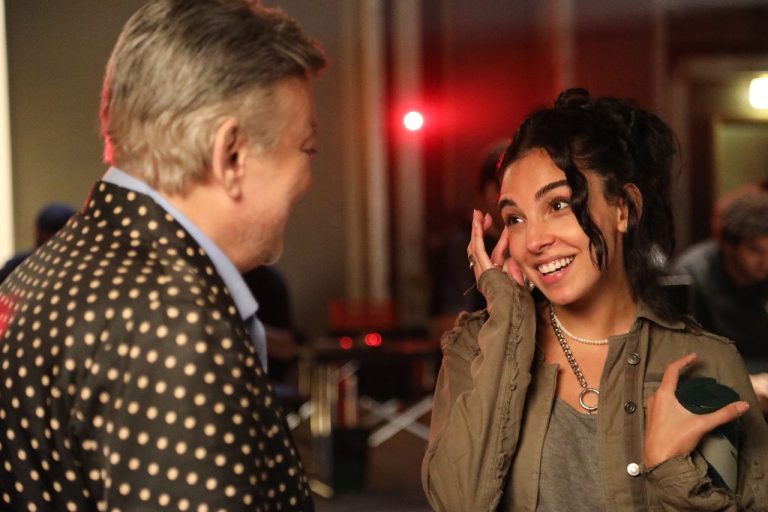Some stories scream to be told. Others whisper, quietly, painfully, waiting for someone to stop and listen. Inshallah El Donia Tethad, the short film starring Salma Abu Deif, directed by Karim Shaaban, and written by Wael Hamdy, is one of those whispers: an intimate look at what happens when grief, pressure, and responsibility collide behind the curtain of performance.
What’s The Story?
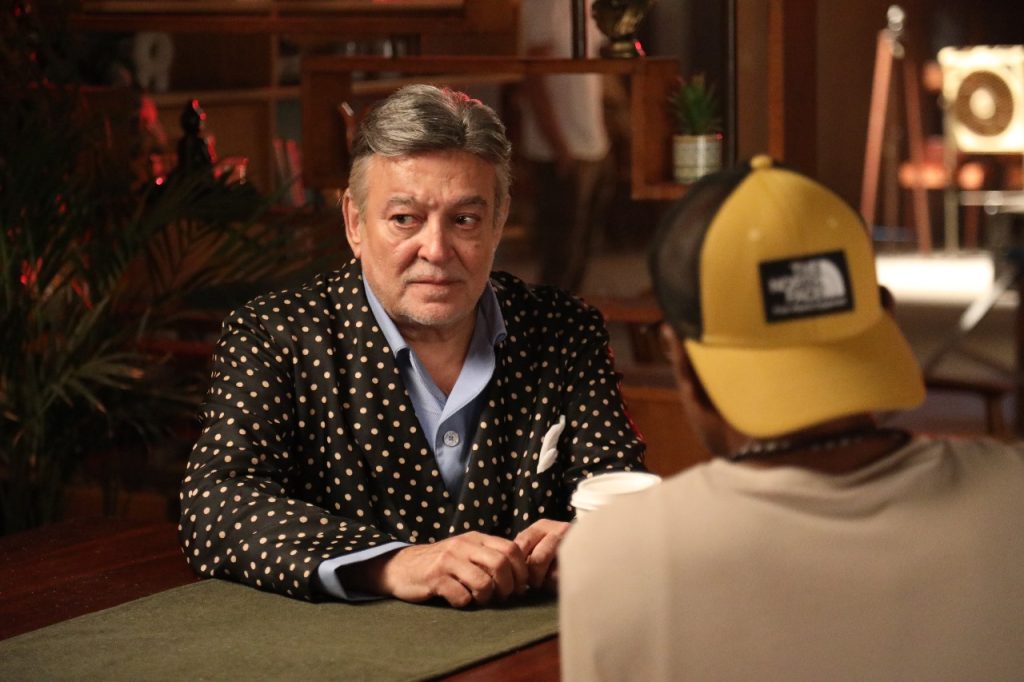
The short film “Inshallah El Donia Tethad” follows a determined line producer caught in the middle of a moral dilemma while trying to hold together a chaotic, one-day commercial shoot. She must choose between fulfilling her professional duties and simply being human.
The Real Moment That Sparked the Film
Before the story reached the screen, it had already been lived.
For Karim Shaaban, the inspiration is rooted in his own experience. Twice, he found himself in situations where he had no choice but to keep going, even as life was falling apart.
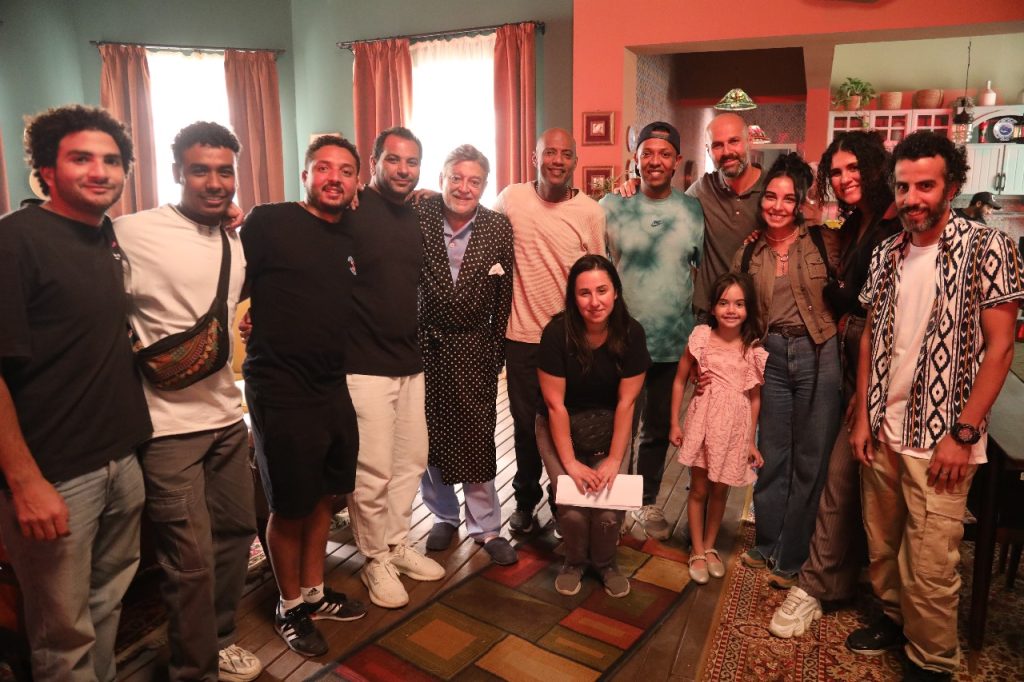
“The film is based on something that happened to me—not once, but twice,” Shaaban reveals. “It made me stop and think about how fast life moves, and how often we don’t get the time to feel or process anything. I wanted to pause that moment and really look at it—to ask a simple question: what’s right and what’s wrong?”
That pause—the internal conflict between duty and emotion—became the heart of the film.
“It struck me how something so big can be made so small, how we trim parts of ourselves and hide massive feelings in tight corners just to keep the wheel running. I wanted to capture that tension honestly.”
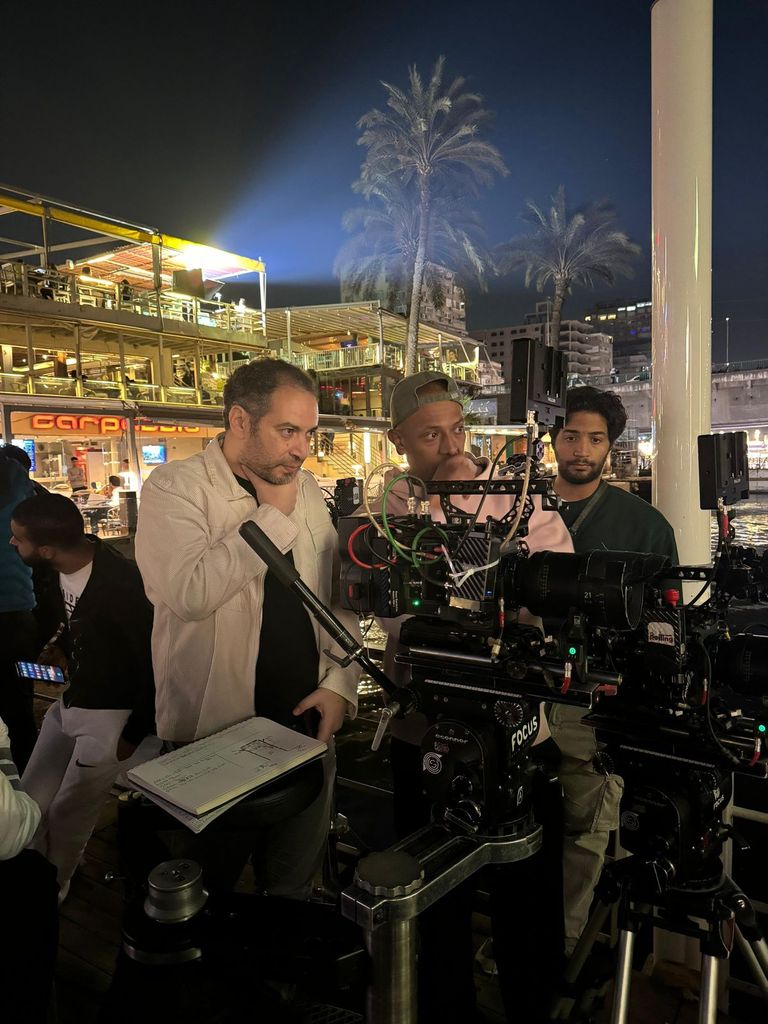
When Shaaban shared the idea with Wael Hamdy, the writer was immediately intrigued—but from an unexpected angle.
“Karim told me the true story—an actor who lost someone during a shoot but continued after a closed-door talk with two producers,” Hamdy explains. “What stayed with me wasn’t the grieving actor. It was the producer—the one who had to convince him to go on. That contrast fascinated me: someone soft-spoken but capable of making really tough calls. That’s the character I wanted to write.”
When Life Imitates Film
What makes Inshallah El Donia Tethad even more emotionally layered is the fact that life threw the filmmakers into the very dilemma they were exploring.
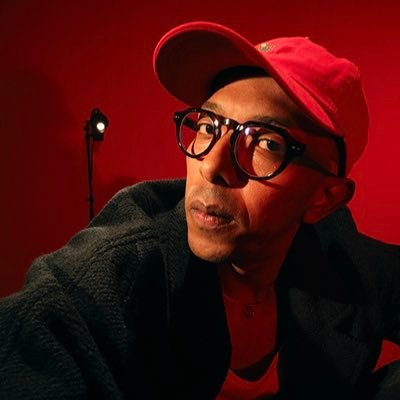
During the production of a bright, upbeat Ramadan commercial, Shaaban was hit with devastating news.
“I found out that my aunt had passed away. It was sudden and deeply painful,” he recalls. “And there I was, standing on a colorful set, surrounded by lights and smiles. I didn’t tell the team—I didn’t want to bring down the energy. So I just… carried it. Silently.”
That moment—grieving in silence while leading a shoot—mirrored the exact emotional conflict the film explores.
“It was one of the hardest days of my life. But I had to keep things running. That dissonance between personal loss and professional pressure is exactly what the film is trying to hold space for.”
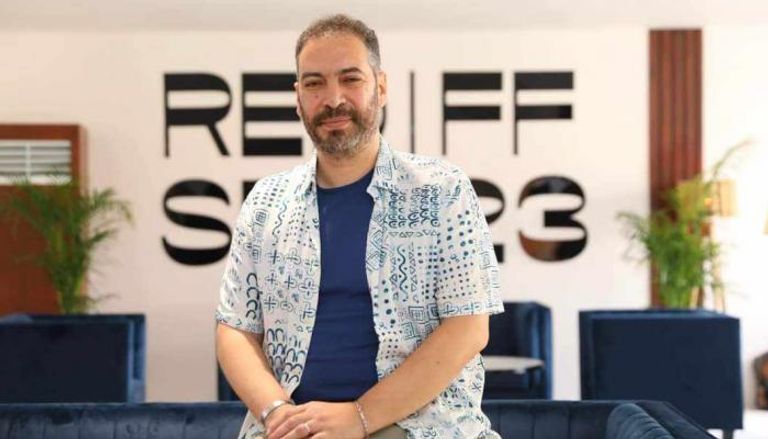
For Hamdy, that duality, showing up professionally while emotionally fractured, was something he’d also lived through.
“When my best friend and longtime collaborator Sherif Badr El Din passed away, I was in the middle of writing Set Ayam,” he shares. “I had deadlines, a workshop in Jordan—there was no room to stop. I had to keep writing, even though I was breaking inside.”
That experience, he says, is the emotional thread that connects him to the film most deeply.
“Writing demands a kind of emotional detachment. But in that moment, I realized how cruel that could feel—how real grief can get squeezed out of the frame just so you can finish a project.”
The Weight of the Title
The phrase Inshallah El Donia Tethad—translated as “I Don’t Care If the World Collapses”—is an emotionally loaded Egyptian expression. It’s often said at breaking points: raw, unfiltered, and desperate.

“Honestly, I don’t know what it means to me anymore,” Shaaban admits. “I’ve been living with this title for over two years. But I think it captures something deeply emotional—like someone holding in a scream. It’s not literal. It’s a feeling.”
For Hamdy, the phrase has evolved over time. What once sounded chaotic now sounds like a plea for stillness.
“When I hear it now, I think of my wife Fatma, and our kids, Karma and Marwan,” he reflects. “It means I want life to slow down. I want to spend time with them, be present. For a long time, work always came first. But in the last few years, I’ve been trying to shift that.”
“Inshallah El Donia Tethad means I hope the madness stops—just enough for me to be human with the people I love.”
A Film That Lets Silence Speak
There are no dramatic explosions in Inshallah El Donia Tethad. No breakdowns, no melodrama. Just the weight of staying silent, the exhaustion of pretending everything is okay, and the invisible strength it takes to keep going.
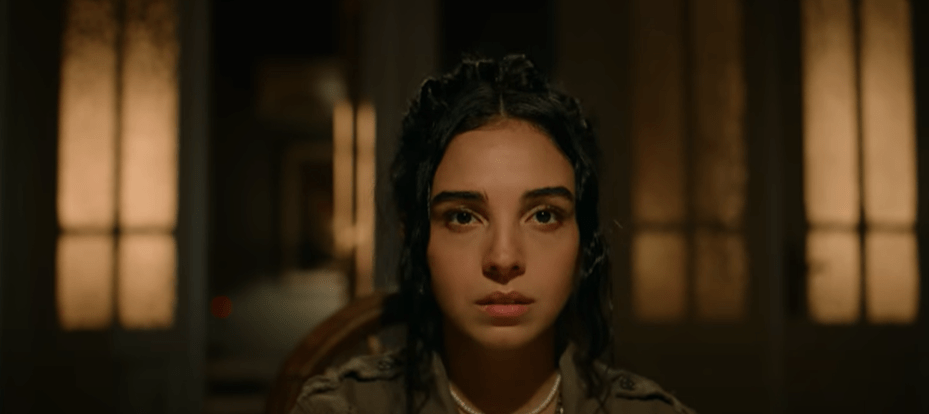
“This film doesn’t scream,” Shaaban says quietly. “It just listens. And sometimes, that’s exactly what we need.”
For both the director and the writer, who previously collaborated on 6 Ayam and Night Shift, the film became a space to reflect, process, and confront something many people experience but rarely talk about: the moment right before you break — but don’t.
And in that stillness, Inshallah El Donia Tethad gives us permission to finally pause.
WE ALSO SAID: Don’t Miss…Bassel Alzaro Talks About “His Best Acting Experience Ever” In Hollywood’s FBI: International!


